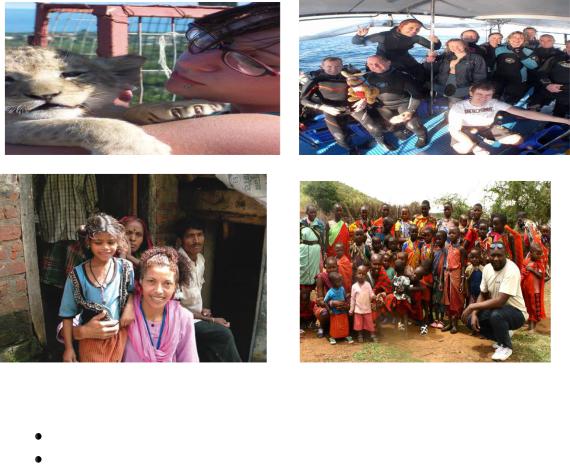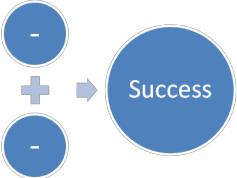
Basic English _Fisrt year_Булатова -31-10-11
.pdfUnit seven |
Choosing a profession |
Lesson two |
Skills and qualifications |
1.What skills do you need to be a
-secretary? -teacher? -nurse?
-shop assistant?
e.g: I need to be sociable, honest, and have good contact with children.
2.Read the list of most valued skills by employers in today‟s job market.
Discuss the questions as a class. Rank the skills from 1 to 10 (1=Most Important and 10=Least Important) based on how important you think each one is.
Which skill do you think is the most important?
Which skill do you think is the least important?
Which skills are in the middle?
Skills |
Rank |
Communication Skills |
________ |
Honesty |
________ |
Teamwork Skills |
________ |
Initiative |
________ |
Adaptability |
________ |
Computer Skills |
________ |
Organizational Skills |
________ |
3.These are the top seven skills most valued by employers in today‟s job market.
Compare these with your rankings.
Are any of them the same? Are any different?
Why do you think this might be?
Communication Skills |
1 |
Honesty/Integrity |
2 |
Teamwork Skills |
3 |
281

Interpersonal Skills |
4 |
Adaptability |
5 |
Computer Skills |
6 |
Organizational |
7 |
4.Break into small groups and say why these skills are most valued. Are there any important skills which are not included in this list?
Listening: Telephone Conversation
5.An applicant phones Catherine, the contact person for the job to arrange an interview. Listen and put the following dialogue in order.
6.Practice the telephone conversation in pairs
a)Catherine: Right, can you tell me why you want this job?
b)Applicant: Thursday at 10, yes that is fine, thank you.
c)Applicant: Yes, good morning. I want to apply for the position of Advertising Executive.
d)Applicant: Yes, of course.
e)Now can you give me your full name and address and can you spell any difficult words please!
f)Catherine: No, green! The grey is for the dentist upstairs. Look forward to seeing you then, bye for now.
g)Catherine Smart (on the telephone): Good morning, Planet Design, how may I help you?
h)Applicant: Well I am good with people and I work well in a team. I‘m working in a restaurant at the moment so I can work under pressure and make sure that the customers are satisfied. That‘s very important!
i)Catherine: Good, thank you for calling, can I take some details please?
j)Applicant: Yes, I have a good time keeping record and I like to take responsibility for all my work.
k)Catherine: Great, Could you come and see us for an interview next weekThursday at 10?
l)Applicant: OK, the grey buzzer?
m)Catherine: Our offices are next to the Bus Station, just press the green buzzer next to the door and tell the office who you are.
n)Catherine: That‘s very interesting. Do you think you could also enjoy working on your own?
o)Applicant: (Gives full name and address and spells tricky words)
Grammar: Past perfect simple
7.Read the mini story
a) I felt tired when he took the train to work yesterday because Jane and I had been to a party the evening before. I suddenly realized that I had left my wallet at home. Then I began to ask myself: Had I left it in the office the day before? I could not remember. I felt awful.
282
The situation is in the past. When we talk about situations before this past time we use past perfect. We are looking back from the situation of the train journey to the earlier actions - going to a party and leaving home without the wallet.
b) Mary does a part time job as a secretary. What had she done before her boss came?
She had sent the letters, bur she had not arranged the meeting.
We form Past Perfect simple with had and the past participle of the main verb.
(See Grammar Reference)
8.Read some more examples:
When they got home last night, they found that somebody had broken into the flat.
My mom didn‘t want to come to the cinema with because she had already seen the film.
The man sitting next to me on the plane was very nervous. He hadn‟t flown before.
9. Identify which action took place first in the past and which action took place second.
1.Before I went home, I checked the front door. My colleague had already locked it.
a.I checked the door.
b.My colleague locked the door.
2.I looked for the boss, but he had left the office.
a.Boss left the office.
b.I looked for Bob.
3.I laughed when I saw my son. He had poured a bowl of noodles on top of his head.
a.I laughed.
b.My son poured a bowl of noodles on his head.
4.I handed Betty the newspaper, but she didn't want it. She had read it during her lunch.
a.I handed Betty the newspaper.
b.Betsy read the newspaper.
5.After Carl arrived in London, he called his manager. He had promised to call him as soon as he got in.
a.Carl made a promise to his manager. b. Carl called his manager.
10. Read the situations and write sentences from the words in brackets.
 You went to Jane‘s house but she wasn‘t there (she/go/out)
You went to Jane‘s house but she wasn‘t there (she/go/out)
283
 You went back to your home town after many years. It wasn‘t the same as before. (it/change/ a lot.
You went back to your home town after many years. It wasn‘t the same as before. (it/change/ a lot.
 I invited her to the party but she couldn‘t come. (she/arrange/to do something else)
I invited her to the party but she couldn‘t come. (she/arrange/to do something else)
 You went to the meeting yesterday. You arrived at the office late.(the meeting/already/begin)
You went to the meeting yesterday. You arrived at the office late.(the meeting/already/begin)
 I was very pleased to see Tony again after such a long time.(I/not/see/him for five years)
I was very pleased to see Tony again after such a long time.(I/not/see/him for five years)
11.Read the situations and write sentences ending with before. Use the verb given in brackets.
1.The man sitting next to me on the plane was very nervous. It was his first
flight.(fly)
Example: He had never flown before. Or He hadn‟t flown before.
2.A woman walked into the room. She was a complete stranger to me. (see)
3.Sally played tennis yesterday. She wasn‘t very good at it as it was his first game.
(play)
4.Last year we went to Malaysia. It was our first time there. (be)
12.Mary decided to give party to her colleagues. What had she done the day before the party?
put up the decoration prepare the food clean the house
bake a cake
send the invitation cards collect nice music on CD
e.g. She had made a list of guests.
Listening: Gap year
13.Talk about the idea of a gap year. If you do not know what it is, read a dictionary definition.
Gap year-
284

Discuss the following questions:
What is a gap year? Who can take it?
What do people usually do during a gap year?
Why do you need to take a gap year?
14. Do you agree with the following ideas? Decide as a group.
Gap years can give you a year‘s work experience.
You have several months to work and save up the funds in your gap year.
Gap years can give you experiences helpful for your next stage in life. For example, finding new social skills and learning how to deal with unusual situations abroad.
15. Listen to two students who have taken a gap year and fill in the table.
|
Speaker one |
Speaker two |
What did she/he do? |
|
|
|
|
|
What did she/he gain? |
1. |
1. |
|
2. |
2. |
|
3. |
3. |
|
4. |
4. |
16. Read the text. What are the pros and cons of a gap year?
Firstly, employers value candidates who have worked and seen real life for a year. However, you should spend the time doing something useful such as voluntary work, a year in the army than just relaxing around the house.
A gap year may be the right option if you're not completely sure what you want to do at university. You won't worry about exams during your final year and the stress level when the results come out in August will be low!
But ask yourself one very hard question: will you be able to start studying math/art/writing/ again? Otherwise you will find it very hard to start at university without falling behind.
285
Spending a year working or travelling you find that your interests change. You may decide that you want to study a different subject.
There are other, more important benefits: if you spend a year working full time you will have less financial problem.
And, of course, the most important thing for you personally is the experience itself. Do something unusual and helpful, like teaching in Australia or voluntary work in the jungle. Go travelling. Have fun!
17.Read the words. What is meaning of the following words in the text? How do you say them in your language? Use the words and speak about a gap year.
employers candidates jungle exams interests financial experience voluntary
18.The pictures below show some activities that young people can do during their gap year. Work in pairs and discuss how useful they can be and choose three activities that you think are the most useful.
Taking care of animals
Babysitting
Working in a rescue team
Teaching children
286

Writing: informal transactional letter
You are going to write a letter. Read the tips.
Imagine that you write to a real friend of yours.
Address him/her with a name: begin the letter with Dear Joey/ Tim /Rebecca, etc.
 Begin your letter with some general statements. Refer to the letter you have received from your friend and thank him/her for it.
Begin your letter with some general statements. Refer to the letter you have received from your friend and thank him/her for it.
 The letter is informal so you can use contractions, informal linking words like well, by the way, anyway, so, etc.
The letter is informal so you can use contractions, informal linking words like well, by the way, anyway, so, etc.
 You can use conversation-like statements or questions in your letter: You know that I had this exam, right? You think he will be able to come to the party?
You can use conversation-like statements or questions in your letter: You know that I had this exam, right? You think he will be able to come to the party?
 Use questions to ask about your friend - arrange the next meeting, send greetings to his/her friends and family, etc.
Use questions to ask about your friend - arrange the next meeting, send greetings to his/her friends and family, etc.
 End your letter in informal way: Best wishes; Love; Regards.
End your letter in informal way: Best wishes; Love; Regards.
19. Study the sample answer.
Question: You are studying abroad and are spending your holidays in a very exciting place. The students you travel with are really nice so you enjoy their companionship. Write a letter to your friend describing what you have been doing and what you plan to do.
Answer:
Dear Amy,
Thank you a lot for your last letter. It was a nice surprise to hear from you. I'm sorry I haven't written to you earlier but I was busy organizing my trip.
287

As you remember I've always wanted to visit some unusual places. And now, at last, off I went! I've chosen to spend my holiday in Antarctica! I'm so excited about the event!
The people I travel with are incredible. It's their fourth visit there. They know every path in the snow by heart. They share their knowledge and experience with me. Would you believe that here everything is different? You even need to set your tent in a special way. Tomorrow we plan to move further North so I may not be able to stay in touch for a while.
Anyway, I'd like to meet you when I get back. Hope you are enjoying your holiday. Do write back soon.
Love,
Becky
Here are some useful expressions you can use.
Thank you for your letter. It was nice to hear from you.
Thanks a lot for the information you've sent me in your last letter. I've just received your letter. I'm so happy to hear that...
I'm sorry I haven't answered earlier but I was really busy with my school. Looking forward to hearing from you soon.
Well, that's all for now. Will talk to you soon. Give my regards to your Mummy.
I'm waiting for the news from you.
20. Now read the question carefully and write your letter
Question: You are abroad spending your holidays in a very exciting place doing English courses. The people you study with and the English teacher are really nice so you enjoy their companionship. Write a letter to your friend describing what you have been doing so far and what you still plan to do.
Communication
21.Make correct questions using Past Perfect and Past Simple. Ask students in the class the questions. Interview at least three people and share the most interesting answers as a class.
Where (you, study) English before you (come) to this university? What (you, hear) about this university before you (come) here? What (you, already, do) before you (leave) home this morning? When you (leave) for class this morning, (the sun, come up)? What (you, never, see) before you (go) to a museum?
Where (you, be) before you (get) home yesterday?
Who (you, know) in this group when you (start) to study here?
288
How many times (you, see) a movie in English before you (come) to this city? What (you, already, eat) before you (come) to class?
Who (already, get up) when you (leave) home this morning?
22.Write down the age you first did these things. Guess if you can't remember. Put X if you haven't done something.
fly in an aeroplane learn to read
learn to swim move house or flat start school
play a computer game ride a bicycle
work part time
Make sentences as shown in the example.
By the time I was seven, I had started school but I hadn't learnt to write.
Ask a partner questions:
By the time you were seventeen, had you travelled abroad?
Independent assignment
1. Make a list of advantages and disadvantages of taking a gap year
E.g. Advantages: Great experience, employers and universities will like you! Disadvantages: Will you be able to work academically after a year of work?
Using the ideas write a discursive composition for or against a gap year.
2.Study current newspaper or Internet advertisements. Pay attention to words and phrases about job specifications or personal qualities / skills & qualifications. Write out what the most wanted jobs/skills/qualifications are. Share your findings.
289

Unit seven |
Choosing a profession |
Lesson three |
Education is the key to success |
Speaking |
|
1.The word success means different things to different people. What is success for you?
1.To achieve success you need to overcome difficulties. Say what barriers stop people from becoming successful. Then in pairs make a list of solutions to each of the problems you have mentioned.
e.g. not enough knowledge, laziness …
2.Can we overcome these problems by going to school and getting more education? By learning more skills? Which ones?
Reading: School leaving age: 18
3.What age did you leave the school at? Would you like to stay at school longer than this?
4.In pairs, decide which of these topics or words from the article are most interesting and which are most boring.
British government / school / Britain / being 16 / education / crime / newspapers / mistakes / the future / politicians
5.Divide into two groups. Students A believe the school leaving age in Britain should be 18. Students B believe the school leaving age should remain as it is – 16. Make a list of reasons why. Debate this with your partners.
6.Look at the article‟s headline and guess whether these sentences are true
(T) or false (F):
a. |
The school leaving age for Europe‘s kids will be 18. |
T / F |
b. |
The new plans come true in 2030. |
T / F |
d. |
The additional two years should have positive effects on crime. |
T / F |
|
290 |
|
